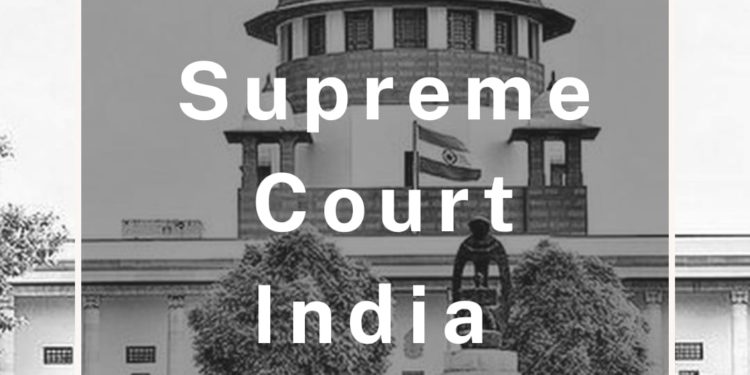Supreme Court was recently hearing a matrimonial dispute matter, where the husband died by suicide in 2014. The top court remarked,
Mere harassment would not amount to an offence of abetment of suicide under Section 306 of the Indian Penal Code.
The bench of Justices L. Nagaswera Rao and Aniruddha Bose observed that, in order to bring a case within the ambit Section 306 IPC, there must be a case of suicide and in the commission of the said offence, the person who is said to have abetted the commission of suicide must have played an active role by an act of instigating or by doing a certain act to facilitate the commission of suicide.
Case:
In September 2014, Roshan Bee, wife of deceased Firoz Khan moved to her parental home with their daughter. Within few days, husband allegedly died by suicide in his house by consuming poison and also left four suicide notes. In these notes, it was mentioned that suicide is because the accused did not send his wife and daughter with him and that they are liable for his suicide. Shabbir Hussain, brother of the deceased filed abetment to suicide case against victim’s in-laws.
The High Court had allowed the revision petition filed by the accused and set aside the Trial Court order framing charge them. In appeal before the Apex court, it was contended that the abetment of the offence of suicide by the accused is prima facie made out as the harassment by them facilitated the act of suicide by the deceased.
Supreme Court
While referring to the judgment in Amalendu Pal v. State of West Bengal(2010) 1 SCC 707, the bench noted,
In order to bring a case within the provision of Section 306 IPC, there must be a case of suicide and in the commission of the said offence, the person who is said to have abetted the commission of suicide must have played an active role by an act of instigating or by doing a certain act to facilitate the commission of suicide.
Mere harassment without any positive action on the part of the accused proximate to the time of occurrence which led to the suicide would not amount to an offence under Section 306 IPC.
Defining Abetment to Suicide
Referred to Chitresh Kumar Chopra v. State (Government of NCT of Delhi) (2009) 16 SCC 605, the court added that abetment by a person is when a person instigates another to do something and that the instigation can be inferred where the accused had, by his acts or omission created such circumstances that the deceased was left with no option except to commit suicide.
The bench therefore dismissed the appeal observing that the allegation is that they harassed the deceased, but there is no other material on record which indicates abetment.
ALSO READ –
Manav Singh Suicide Update | Accused Girls Face Trial For Abetment To Suicide Over Instagram Post
READ ORDER | Demand Of Money Vague Term: Bombay HC Acquits Man In Wife’s Abetment To Suicide Case
Mumbai Court Grants Bail To Man, Family On Charges Of Wife’s Abetment To Suicide
“Man Returning Late Or Eating Outside Is Not Harassment”: Bombay HC Acquits Husband From Abetment Of Suicide
Join our Facebook Group or follow us on social media by clicking on the icons below
Join our Facebook Group or follow us on social media by clicking on the icons below
If you find value in our work, you may choose to donate to Voice For Men Foundation via Milaap OR via UPI: voiceformenindia@hdfcbank (80G tax exemption applicable)































